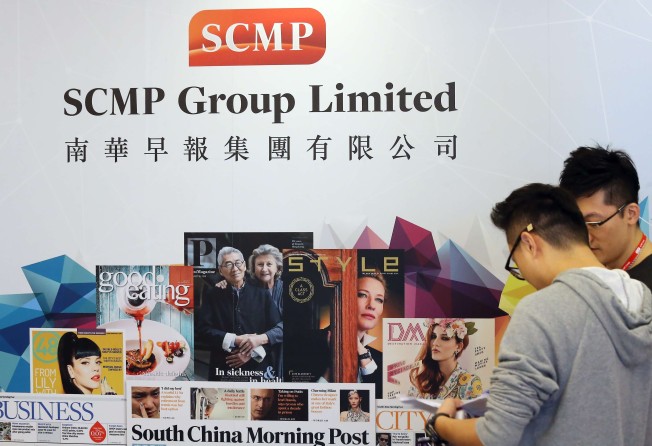South China Morning Post tops list of Hong Kong’s most trusted paid newspapers
Study by Chinese University finds trust in the media, however, is at its lowest level since 1997

The South China Morning Post remains Hong Kong’s most trusted paid newspaper, according to a survey on media credibility by Chinese University.
However, the study, the seventh since 1997, showed overall trust in the local media was at the lowest level ever recorded.
The university’s school of journalism and communication interviewed 907 people over the phone in August for the study.
The Post scored 6.54 on a scale of one to 10 in the survey, a slight drop from 6.98 recorded in the last poll in 2013.
However, it is still the best score in the “paid newspaper” category, of which the overall average score of 11 newspapers surveyed was 5.58.
The Post has been rated highest in the category in six of the seven studies.
In the “electronic media” category, government-run radio and television station RTHK was the most trusted among the six broadcasters, with a score of 6.76.
TVB, meanwhile, which has drawn public criticism over its handling of some news items in recent years, was rated the least trusted in the category, with a score of 5.88, compared with 6.25 in the 2013 study.
The overall average score in the “electronic media” category was 6.36.
“Online news media” scored an average of 4.81, the lowest rating among the four categories of media studied. The overall score for the “free newspapers” category was 5.83.
The overall average credibility rating for all media was 5.89 – a drop from 6.18 in the 2013 poll and also the lowest since 2001.
Professor Clement So, from Chinese University’s school of journalism and communication, who conducted the research, said: “While people are getting more used to going to online media for news, the survey shows the credibility of the online news media is not high at all.
“Very often, people read online news, which is usually treated in a more sensational way with eye-catching headlines, for fun. But not many of them take the news by online news outlets very seriously.
“This shows most readers are mature enough to know which media they should go to when they want to read news that is trustworthy.”
Professor Leung Tin-wai, head of Shue Yan University’s department of journalism and communication, shared similar views.
“The study only reflects the respondents’ impression of news media. That would not be fair if we link the professionalism of our journalists only on the basis of people’s impression of the media they work for,” he said.
“Hong Kong has a free press. And different media would have their own different editorial policies. People would tend to think more highly of media with editorial policies that they agree more with.”